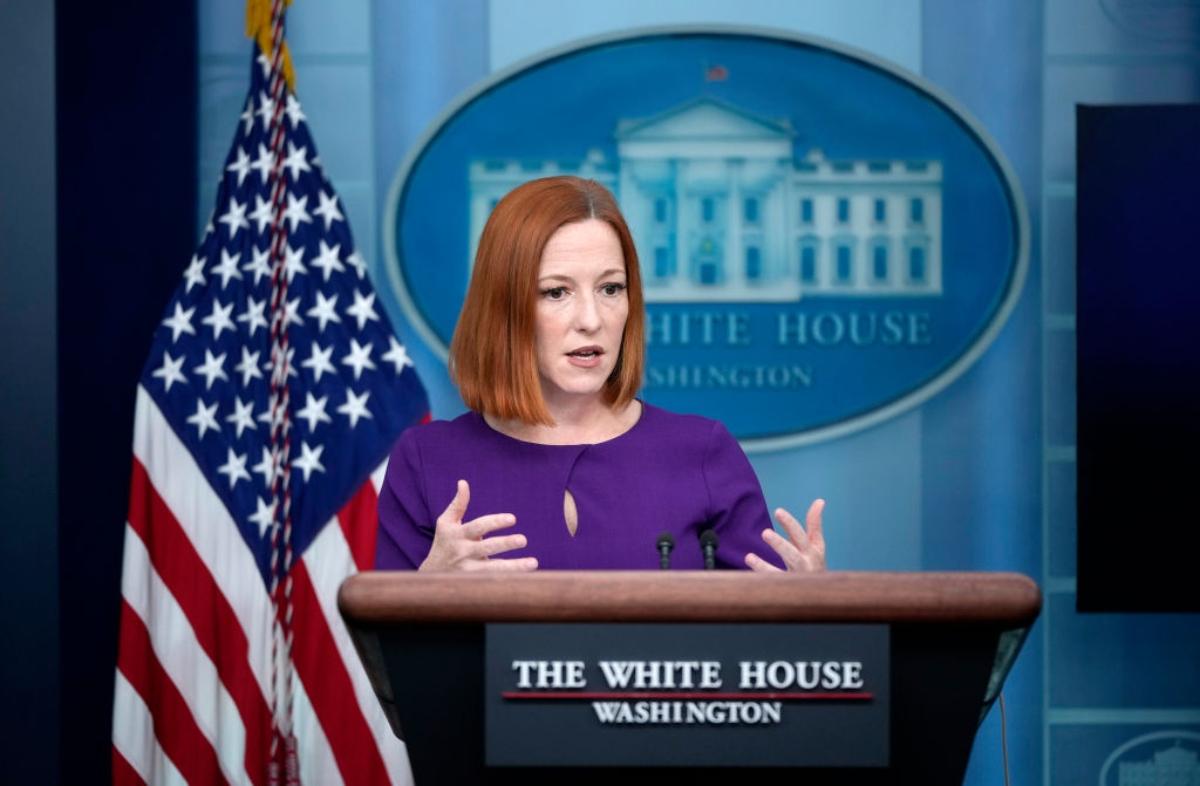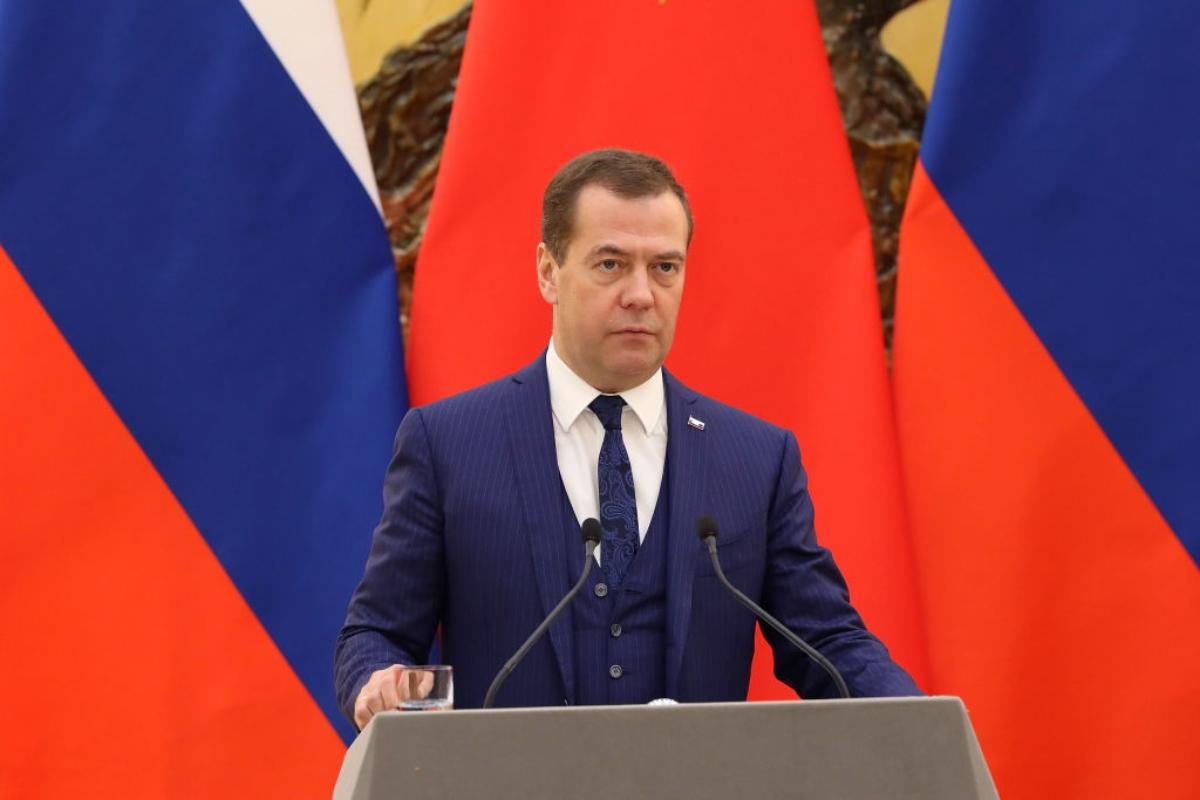The SWIFT Banking System and Why It Matters to Russia
The SWIFT banking system is a messaging network that facilitates secure international financial transactions. Some nations have considered sanctioning Russia's access to SWIFT.
Feb. 24 2022, Published 1:14 p.m. ET

Protestors in Russia responding to Russia's invasion of Ukraine.
The SWIFT banking system is a communication network that enables rapid financial transactions across member countries. The system could play a vital role in how nations respond to Russia’s invasion of Ukraine. So, what is the SWIFT banking system, and why does it matter?
President Biden has discussed severe economic sanctions as a means of responding to Russian President Vladimir Putin’s invasion and the Russia-Ukraine tensions. Whether or not disconnecting Russia from the SWIFT banking system would cause enough pain to the country to change Putin’s political actions remains to be seen.

White House press secretary Jen Psaki speaking about potential U.S. sanctions against Russia on February 23, 2022.
How do SWIFT payments work?
The Society for Worldwide Interbank Financial Telecommunications, or SWIFT, is a Belgian messaging company. SWIFT connects over 11,000 financial institutions globally to facilitate financial transactions. Although SWIFT isn't a bank, it enables banks and financial firms to communicate about transactions.
SWIFT was founded in 1973 with 239 banks spanning 15 countries banded together to facilitate payments across borders. According to SWIFT, in 2021 it recorded an average of 42 million FIN messages daily.
SWIFT assigns a unique code to each participating financial institution, based on the location and institution. The codes are used in sending unique payment messages, which enable members to take card or electronic payments even if the customer or vendor doesn’t use the same bank as the payee.
According to December 2019 figures, almost half of SWIFT’s messages are used for payments, with 47 percent for security transactions and the remainder divided among Treasury, trade, and system transactions.
SWIFT may be a tool in international efforts to stop Russia.
Leaders of the U.S. and other nations have talked about whether cutting off Russia’s access to SWIFT payments would be effective. The measure was discussed in 2014 as well, when Russia invaded Crimea, as The New York Times reported a few weeks ago.
SWIFT enables quick and convenient international transactions, so sanctioning Russia from that tool would be harmful. Some scholars and officials say that it wouldn’t be as devastating to Russia as other nations might hope.
Dmitri A. Medvedev, the former prime minister of Russia, is the Security Council’s deputy chair. He told Russian news agency TASS that the new financial system the country has developed is functional. He stated that international financial transactions would be more complex but “it won’t be a catastrophe.”

Dmitri Medvedev pictured in 2018. He is confident that even if Russia is cut off from SWIFT, the consequences would not be too dramatic.
Disconnecting Russia from SWIFT could have consequences for other nations.
Cutting off Russia from SWIFT, though painful for Russia, could lead to other unintended consequences. For example, nations in the European Union would be barred from Russian imports of oil, gas, and metals because Russia wouldn’t be able to receive foreign currency. Russia is a major U.S. oil supplier as well.
Former U.S. Treasury official Adam Smith said that Russia is “twice the size of any economy the U.S. has ever sanctioned,” according to the NYT. He also suggested that the U.S. and Europe could try to exclude some sectors from sanctions, such as energy.
EU nations will likely not remove Russia from SWIFT, Reuters has reported. This is partly because European creditors might not be able to recoup their money. Also, Russia has been developing alternatives to SWIFT, especially since the 2014 threats of SWIFT sanctions.
